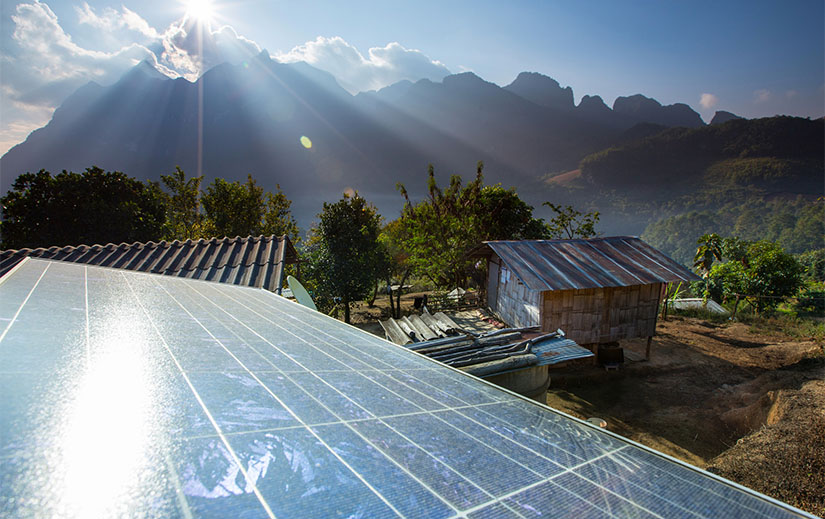
2 月 . 21, 2024 14:03 Back to list
Distributed Energy Storage: Playing a Vital Role in North Carolina's Decarbonization Strategy
In North Carolina, there is a growing recognition of the importance of distributed energy storage systems in advancing the state's decarbonization efforts. These systems, often in the form of residential energy storage systems or home batteries, play a crucial role in reducing reliance on fossil fuels and promoting cleaner energy sources. By providing load management capabilities, these systems help to meet peak electric demand, thereby reducing the need for costly and environmentally harmful fossil fuel peaker plants. When paired with solar photovoltaic (PV) panels, batteries can also offer clean backup power, improving energy resilience and cutting down on home energy bills. These benefits are essential for North Carolina, but achieving them requires strong state policy leadership and support.
The passage of North Carolina House Bill 951 (HB951) in 2021 marked a significant step towards the state's goal of achieving net-zero carbon emissions by 2050. Duke Energy Carolinas (DEC) and Duke Energy Progress (DEP), the state's largest investor-owned utilities, collectively referred to as "Duke NC," serve a significant portion of the state's residential electric utility customers. Despite setting climate goals and plans to reduce greenhouse gas emissions, North Carolina currently lacks legislative policies specifically incentivizing distributed residential solar and energy storage. This underscores the need for equitable policy, including financial incentives, to ensure that ratepayers in North Carolina can benefit from distributed energy storage systems, similar to residents in other states.
In compliance with HB951, DEC and DEP submitted their proposed 2023-2024 Carbon Plan and Integrated Resource Plan (CPIRP) to the North Carolina Utilities Commission (NCUC) in August 2023. The CPIRP outlines the utilities' plans for coal retirement and electric capacity expansion over the next 15 years to align with North Carolina's climate goals. While Duke NC aims to achieve a 70 percent reduction in carbon emissions by 2030 and reach net-zero emissions by 2050 through various measures, the plan lacks specific provisions for distributed energy storage. Instead, the focus is on utility-scale storage investments, with significant capacity allocated to solar PV and renewable resources. This omission highlights the potential for behind-the-meter energy storage to play a more substantial role in Duke NC's decarbonization journey.
Looking ahead, Duke NC plans to install a substantial amount of solar PV and energy storage capacity by 2035. The proposed resources include solar PV, stand-alone battery storage, battery storage combined with solar PV, onshore wind, fossil gas-fired resources, and pumped hydro storage capacity. While these utility-scale investments are crucial, the absence of concrete plans for distributed or behind-the-meter storage resources is a missed opportunity. The inclusion of behind-the-meter energy storage programs can offer valuable grid services, resilience benefits, and cost savings for both utilities and customers. By addressing this gap through targeted incentives and support, North Carolina can enhance its energy resilience, grid reliability, and overall energy equity outcomes.

One of the key advantages of behind-the-meter battery storage is its ability to lower costs for utilities and customers, reduce peak demand, and increase reliability and resilience of the electric grid. By empowering communities and individuals to have more control over their energy supply, these systems can contribute to decreased electricity cost burdens and improved energy equity outcomes. Addressing the electricity cost burden for low- to moderate-income households is particularly critical in North Carolina, where households with lower median incomes are disproportionately affected by high electricity costs. By designing a well-structured distributed storage program, the state can help alleviate this burden and ensure that all residents can benefit from clean and affordable energy solutions.
To support North Carolina's decarbonization goals and promote equity in energy access, three key policy recommendations are proposed. Firstly, approving and expanding utility deployment of equitable distributed solar and energy storage pilot programs can assist in meeting decarbonization targets and reducing the state's reliance on fossil fuels. Additionally, creating statewide financial incentives for residential and community-based distributed solar and battery installations can lower barriers to participation, especially for low-income customers. Lastly, establishing equity, climate, and energy performance-based metrics for electric utilities can drive accountability and ensure that benefits are equitably distributed. By implementing these recommendations, North Carolina can unlock the full potential of distributed energy storage systems as a vital component of its decarbonization strategy.
Will be removed if infringing
Reference website:https://www.cleanegroup.org
-
Unraveling the Power of EMS Energy Management Systems
NewsOct.23,2024
-
Unleashing the Potential of Power System Management and Smart Energy Solutions
NewsOct.23,2024
-
Smart Energy Mastery: Unleashing the Power of Controls
NewsOct.23,2024
-
Smart Energy Management: Unleashing the Power of Energy Management Systems and BMS Energy
NewsOct.23,2024
-
Powering Progress: ADMS, Intelligent Management & More
NewsOct.23,2024
-
Energizing the Future: Devices, Smart Management & Savings
NewsOct.23,2024


